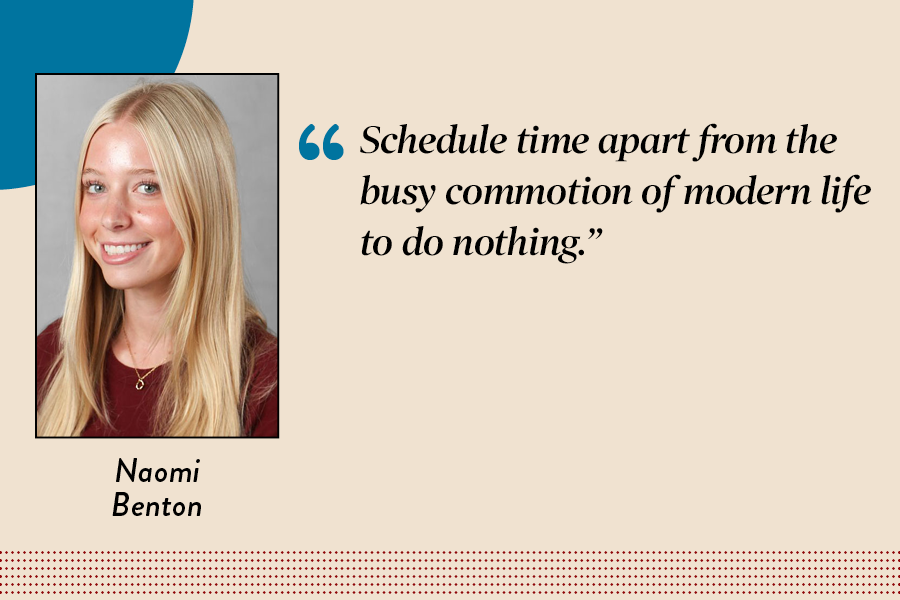Two years ago, I went on a five-week camping trip across the Pacific Northwest through a program run by my sleepaway camp. Without a phone, I was completely disconnected from my life back home. At first, this was stressful. I felt FOMO — the fear of missing out — and I would even occasionally feel the ding of an imaginary notification.
Fortunately, I settled into my new way of life after only a couple of days. I got used to sleeping in a small tent with four other people, eating bread-and-cheese sandwiches every day, and visiting beautiful places I had never been to before. On the longer hikes and even longer bus rides, I also began to experience an unfamiliar sensation: boredom.
I had forgotten what boredom felt like. I realized that all year round, I remain busy. Depending on the season, my days were filled with a different combination of school, homework, extracurriculars and jobs.
This experience is mirrored in the lives of many students. People are not only busy, but they associate boredom with negative implications. Most people’s first response is to find the quickest route to relieve it — but it shouldn’t be.
Over Thanksgiving break, again left without the responsibilities of my usual lifestyle, I reflected on the concept of boredom. I was finishing “The Comfort Crisis,” a book my dad had made me read by New York Times bestselling author Micheal Easter.
In “The Comfort Crisis,” Mr. Easter argues that boredom is extremely beneficial to humans, promoting creativity and imaginative thinking.
Mr. Easter also explains how boredom is an evolutionary trait, derived from the hunter-gatherer era. This ancient art is lost in modern times, because most people have a flat, rectangular device that sucks them into an algorithm specifically designed to keep them engaged. The activity of mindlessly scrolling through social media or watching a television series does not require any critical thinking. Being bored, on the other hand, does.
An educational specialist at the Child Mind Institute, Jodi Musoff, similarly supports the positive effects of boredom. She notes that boredom is specifically beneficial to kids, helping them foster important skills, such as problem-solving, individual thinking and creativity.
Contrary to the belief of many, boredom is productive, especially for the impressionable and evolving minds of students. Instead of abhorring the concept of boredom, students should embrace it — not only by allowing themselves to be bored but by actively seeking it.
Schedule time apart from the busy commotion of modern life to do nothing. Turn off the phone, take out the AirPods, step outside and take a walk.
Re-learn what boredom feels like.





















































